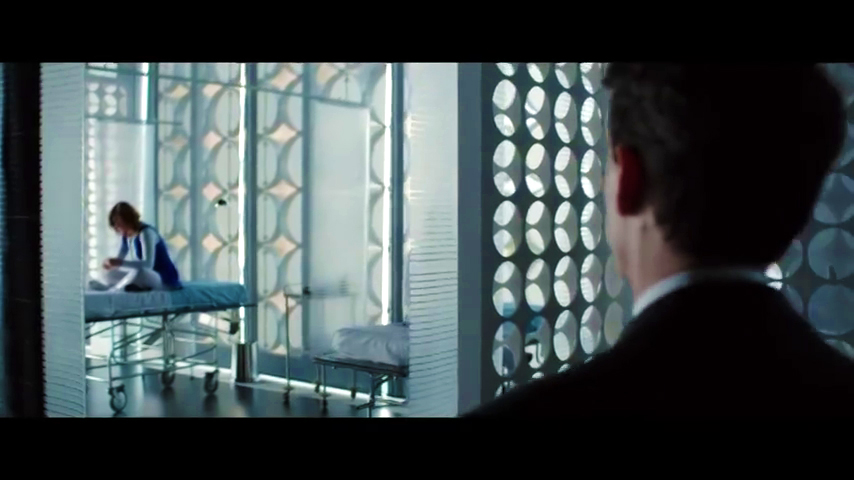I’m not going to lie; I struggled with yesterday’s lectorial quite a bit. It was on the theme of media materialism, which is to say (I think), it was about media as physical artefacts rather than theoretical concepts. Daniel was our lecturer again and he explained to us concepts such as the ‘anthropocene’, or the age of man on earth, and he discussed a whole range of examples of end-of-the-world scenarios on film. At the end of the lecture, he asked us to blog on one of five prompts, one of them being my choice in the title above, ‘humans are in control of our own destiny’.
I chose it because I once again saw a link between media one and my literary studies course. That very morning in textual crossings we had watched ‘predestination’, an Australian-American sci fi movie that was filmed around Melbourne and even in RMIT.
If you haven’t seen the film and intend to (and if you like sci fi I recommend you do because I quite enjoyed it), look away now to avoid spoilers. Basically, the film questions how much we are in control of our own destiny through looking at time travel and the possibility of an infinite, paradoxical time loop. Basically, the central character (who seems to be three characters at first, and then two, and then finally we realise it has been the same person all along) is born a woman, and meets a future version of herself after a sex change to a man, with whom she conceives a child, the birth of which causes her to become the man that will go back in time and impregnate her past self. The baby is taken shortly after birth, and it is later revealed that she is in fact both her own mother and her own father. Furthermore, as he (now a male) is taken back in time in the first place by a mysterious time agent who is seeking to capture a terrorist bomber, it slowly becomes clear that the time agent is another, surgically altered future version of himself and an even further distant future version is the bomber. Are we still following?
It’s complicated, I know, and to be honest bordering on the ridiculous. However, despite the fact that I managed to see every single plot twist coming before it happened, I didn’t really notice how ridiculous the story really is while I was watching it. It’s a well-told story that asks an interesting question: what if time travel were possible, and somebody used it to go back into their own timeline and create an event that their future existence depended on? Would they then be ‘predestined’ to go on to live that life, or would they have a choice, could the control their own destiny?
It’s an interesting philosophical question because at many times in our own lives – as Daniel was suggesting with this prompt – we already ask ourselves if we are in control of our lives and our destiny as a human race as a whole, or if some events must occur. As John asks Ethan Hawke’s time agent before he realises he is his future self, “Yeah, but don’t you sometimes think that things are just inevitable?” To which the agent replies, “Yes, the thought had crossed my mind.” Throughout the film, the central character is faced with several choices between what is ‘predestined’ and what he/she wants. After falling in love with his past self as a woman, and remembering the hurt he caused himself, John is reluctant to leave Jane and tries to shoot the agent, before the agent explains to him what his destiny is.
Look, it’s all very complicated I know, but it’s an enjoyable film that imaginatively and philosophically asks the question, are we in control of our own destiny?
